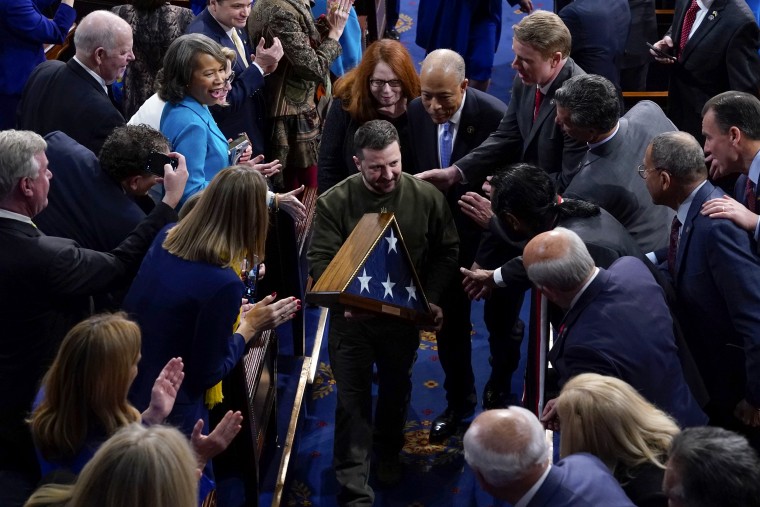In his first known visit abroad since the war in Ukraine began, President Volodymyr Zelenskyy traveled to Washington on Wednesday and delivered a speech before Congress. Dressed in olive fatigues and making references to critical moments in American war history, he made a dramatic plea for more aid as Ukraine prepares for a brutal winter showdown with Russia. He received multiple standing ovations, warm laughter in response to a few comically delivered lines and praise from both parties.
But he may not get what he wants.
Ukraine’s military needs are changing as the war evolves, but Washington is changing as well. Come January, Republicans will control the House of Representatives, and they could slow down the stream of unceasing military and economic aid to Ukraine, in accordance with the party's drift toward a nationalist America First outlook.
Zelenskyy is a charismatic speaker, and the speech was well received by most members of both parties. But that doesn’t mean that he swayed anyone to view the war differently.
Zelenskyy is a charismatic speaker, and the speech was well received by most members of both parties. But that doesn’t mean that he swayed anyone to view the war differently. Republican lawmakers like Rep. Pat Fallon of Texas responded positively to Zelenskyy’s speech, but said he saw it as unlikely to change people’s minds. Some MAGA Republicans like Rep. Matt Gaetz of Florida looked at their phones as Zelenskyy spoke. Gaetz later said in response to the speech, “Hemorrhaging billions of taxpayer dollars for Ukraine while our country is in crisis is the definition of America Last.” Rep. Lauren Boebert of Colorado expressed sympathy for Ukraine’s crisis but said she refuses to support additional aid until there’s a “full audit” documenting exactly how previous aid has been spent.
“President Zelenskyy is working to protect his country’s border and his people. I get it,” Boebert said in a video message responding to the speech. “I really just wish our commander in chief would do the same right here at home.”
House Minority Leader Kevin McCarthy met privately with Zelenskyy before his address to Congress, and afterward described Zelenskyy’s speech as “very good.” But he also reprised a point he made this fall: “My position has never changed. I support Ukraine but I never support a blank check.”
It’s unclear what exactly an audit would entail, or what dampened enthusiasm for aid to Ukraine would look like. Theoretically, Republican concerns could mean smaller total amounts of aid, slower approval of aid, restrictions on the kind of weapons being sent over, or ending certain kinds of aid altogether.
What we do know is that the MAGA faction of the GOP has McCarthy’s ear as he scrambles to secure the votes he needs to become speaker of the House. With a narrow Republican majority, McCarthy cannot afford more than four defections within his caucus, and it’s plausible that his negotiations to win support from fringe MAGA types like Rep. Marjorie Taylor Greene of Georgia have involved agreements to change Ukraine aid policy in some fashion.
McCarthy will also face pressure from influential right-wing nationalists like Fox News host Tucker Carlson, who called Congress praising Zelenskyy and considering giving him more aid “humiliating.”
Zelenskyy's speech in Congress was at least in part a bid to win over Republicans who might be on the fence about sending more aid to his country. But from the looks of it, he did little to blunt the right’s increasing skepticism of involvement in foreign conflicts.

